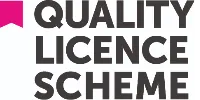Oxford Home Study Centre is proud to offer a wide range of endorsed project management programs, open for enrolment throughout the year and with no formal entry requirements. Our Level 6 Diploma in Project Management comprises 16 in-depth modules, discussing the topics and knowledge areas outlined below:
Module 1 - Overview of Project Management
The functions and objectives of project management activities are discussed in Module One, which also provides examples of projects and discusses the everyday responsibilities of the project manager. Candidates also consider project constraints, the use of essential project management tools and more.
Module 2 - What is Global Project Management?
Learners then consider the main differences between global project management and domestic project management, including potential challenges and counted when taking control of international projects. The importance of communication skills and leadership skills in global project management are also discussed.
Module 3 - Project Life Cycle
A detailed breakdown of the project life cycle follows in the third module, guiding learners through project conception and initiation, planning, execution, performance/monitoring, and project closure. Project selection criteria and establishing objectives for projects is also discussed.
Module 4 - Project Integration Management
Module Four brings project integration management into discussion, along with the importance of strategic project plan development and subsequent implementation. Candidates also consider overall change control, alongside several essential project management knowledge areas.
Module 5 - Project Scope Management
The concept of project scope is discussed in the fifth module, in which learners are familiarised with the differences between product scope and project scope. Several additional project planning essentials are discussed, alongside the use of scope planning tools and techniques.
Module 6 - Project Time Management
Module Six emphasises the importance of strategic time management for the successful completion of projects. Topics covered include defining project activities, inputs to activity definition, evaluation of estimates, decomposing project work packages and more.
Module 7 - Project Cost Management
Cost control, budgeting and the importance of accurate estimates are brought into discussion in Module Seven. Topics covered include determining the initial budget, resource planning inputs, strategic cost budgeting and the importance of knowing when and where to use expert judgement.
Module 8 - Project Quality Management
Quality control as a project management essential is discussed in Module Eight, which presents a series of helpful tools and resources for maintaining quality standards. Additional topics include planning for quality, creating a quality policy for a project and reviewing the project scope statement.
Module 9 - Effective Planning & Scheduling
The functions and objectives of work breakdown structures are examined in Module Nine, which also takes a look and the importance of strategic scheduling. Candidates learn how to ensure resources are aligned with the requirements of a project, while considering potential challenges to successful project planning.
Module 10 - Human Resource Management
HRM within the field of project management follows in Module 10, which emphasises the importance of accurately identifying all key staffing requirements. Deployment and delegation are also discussed, along with how to identify project constraints and the role of team leadership in project management.
Module 11 - Change Management
Module 11 presents and discusses a series of key factors in successful change, discussing the value of taking a positive and proactive approach to all types of change. Further time management tips, tricks and activities are discussed, alongside a breakdown of the main stages of the change cycle.
Module 12 - Conflict Management
A look at the main causes of conflict in the workplace follows in Module 12, with an overview of several different types of conflict and the potential impact of workplace disputes. Candidates consider the vital role communication plays in conflict resolution, along with how disputes can sometimes lead to positive outcomes.
Module 13 - Stress Management
Exercises and activities for taking better control of stress are presented and discussed in Module 13, which emphasises the inevitability of stressful situations at work. The connection between strategic time management and effective stress management is also discussed.
Module 14 - Communication Management
Module 14 explores the critical role communication plays in a successful project management, including the communication skills every project manager must possess. Additional topics covered include exploring communication modalities, identifying communication requirements and communications planning.
Module 15 - Procurement Management
A look at the procurement process in project management follows in Module 15, which also examines the differences between purchasing and procurement. Further topics covered include planning for procurement, referring to the scope statement, evaluating market conditions and more.
Module 16 - Risk Management
The course concludes with a look at several essential risk management activities within the field of project management. Learners are guided through the process of identifying risks, categorising and prioritising risks, selecting appropriate risk mitigation methods and conducting in-depth SWOT analysis.
Explore various free courses on our website. You can even take a start with one of our free Project Management courses today.


![<php echo $related_row['name']; ?>](https://www.oxfordhomestudy.com/images/subject/1709816351ProjectManagementEndorsed1.webp)
![<php echo $related_row['name']; ?>](https://www.oxfordhomestudy.com/images/subject/1709816358ProjectManagementEndorsed2.webp)
![<php echo $related_row['name']; ?>](https://www.oxfordhomestudy.com/images/subject/1709816367ProjectManagementEndorsed3.webp)
![<php echo $related_row['name']; ?>](https://www.oxfordhomestudy.com/images/subject/1709816376ProjectManagementEndorsed4.webp)
![<php echo $related_row['name']; ?>](https://www.oxfordhomestudy.com/images/subject/1709816385ProjectManagementEndorsed5.webp)
![<php echo $related_row['name']; ?>](https://www.oxfordhomestudy.com/images/subject/1709816395ProjectManagementEndorsed6.webp)
![<php echo $related_row['name']; ?>](https://www.oxfordhomestudy.com/images/subject/1709816487SixSigmaEndorsed1.webp)
![<php echo $related_row['name']; ?>](https://www.oxfordhomestudy.com/images/subject/1709816496SixSigmaEndorsed2.webp)
![<php echo $related_row['name']; ?>](https://www.oxfordhomestudy.com/images/subject/1709816508SixSigmaEndorsed3.webp)
![<php echo $related_row['name']; ?>](https://www.oxfordhomestudy.com/images/subject/1709816517SixSigmaEndorsed4.webp)
![<php echo $related_row['name']; ?>](https://www.oxfordhomestudy.com/images/subject/1709816528SixSigmaEndorsed5.webp)
![<php echo $related_row['name']; ?>](https://www.oxfordhomestudy.com/images/subject/1709816406ProjectManagementEndorsed7.webp)